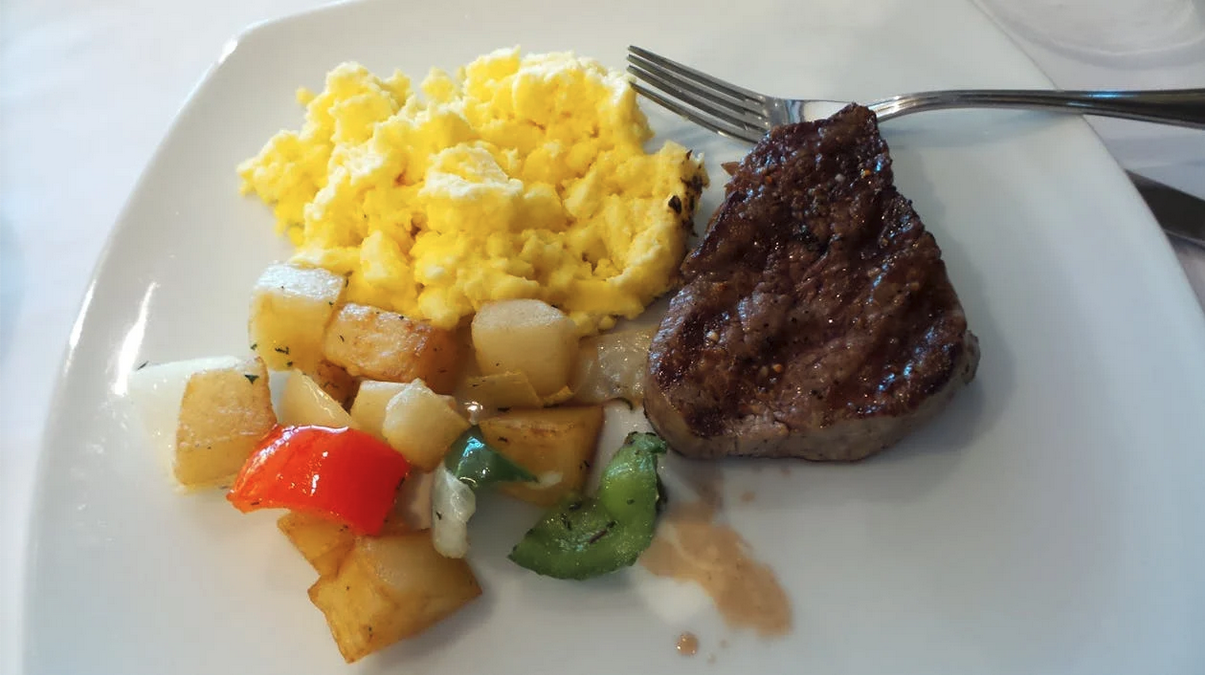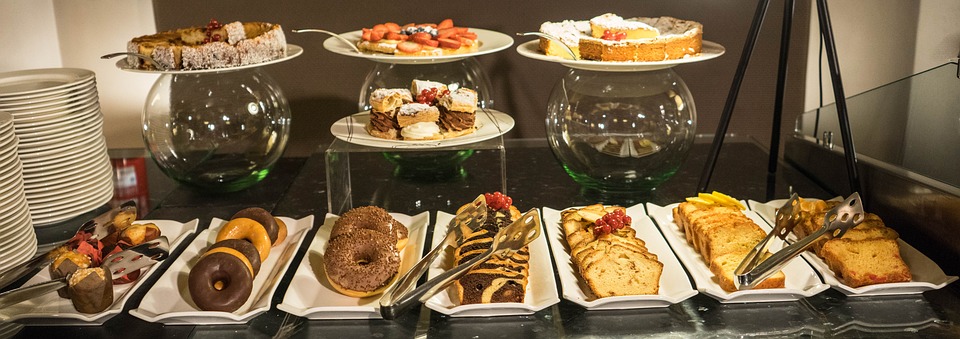For some people, going to a hotel that offers a free continental breakfast (psst! Here’s why they call it “continental” breakfast) is a big deal. If you have a big family or just want to be able to eat and run quickly, that free breakfast will save you a lot of time and money.
However those continental breakfasts have their downsides, too. The coffee is usually pretty nasty. The food is usually simple stuff, such as cold cereal, yogurt and bread stuffs. And if there’s anything hot, it’s usually very simple to prepare and able to sit for a few hours.
And therein lies the hidden danger to those breakfasts too – the possibility of getting some sort of foodborne illness. Yep, food poisoning. Food that’s been sitting out all morning can become a high risk of potential bacteria contamination, and some peoples’ lack of handwashing only adds to the possibility of becoming sick. And since it’s impossible to know what could be harmful by just looking at or even tasting the food, it’s important to know which items are safe to eat and which ones you’ll probably want to skip.
Foods to avoid
Foods that aren’t shelf-safe, such as dry cereal, are supposed to be kept at certain temperatures.
“Hot” foods that aren’t hot
 According to the Centers for Disease Control and Prevention (CDC), when foods are left out in the “danger zone” (between 40 and 140 degrees Fahrenheit. So, typical room temperature) for more than two hours, germs that could make you sick have the opportunity to rapidly reproduce. And unfortunately, food that’s in a buffet or continental breakfast setting could be sitting out there even longer than that.
According to the Centers for Disease Control and Prevention (CDC), when foods are left out in the “danger zone” (between 40 and 140 degrees Fahrenheit. So, typical room temperature) for more than two hours, germs that could make you sick have the opportunity to rapidly reproduce. And unfortunately, food that’s in a buffet or continental breakfast setting could be sitting out there even longer than that.
Hot foods – cooked eggs, sausages, bacon, quiche, potatoes and any breakfast food that’s supposed to be served hot – need to be kept hot. They should be in a chafing dish or on a hot plate to help keep them at a safe temperature. Oh, and heat lamps don’t count – they’ll keep the foods warm, but not hot enough to stop bacteria from growing.
If they’re left out with no heating element? Scrambled eggs in a bowl? Sausage on a plate? Don’t eat it.
“Cold” foods that aren’t cold
Going back to that “danger zone” – foods that are typically kept cold – think dairy products, juices, deli meats, fresh vegetables etc. – need to be kept cold for the same reason hot foods need to be kept hot – so bacteria don’t start growing on them while they’re sitting out. And the warmer the environment, the faster the cold foods will go bad.
There are a few exceptions to this rule – items that are shelf stable (individual creamers, single-served boxed juices that don’t say “keep refrigerated”) are OK at room temperature. single packets of butter are also OK for several hours, because the salt in the butter keeps it shelf stable.
Fresh fruit & vegetables
Before you grab that fresh produce, take a good look at it. Soft edges could mean it’s starting to rot. Dirt on the skin or on the leaves could indicate the produce wasn’t cleaned. And any sort of melon is risky because if the rind is contaminated with some sort of bacteria and wasn’t washed before it was cut, the knife will pick up the bacteria and contaminate the flesh of that fruit and any other fruit it touches.
Finger food
 Whether a hotel offers a serving utensil or not, some people just use their hands to grab that cookie, strawberry, etc. And who knows where those fingers have been? Did they pick their nose? Are you sure they washed their hands after their post-coffee bathroom run?
Whether a hotel offers a serving utensil or not, some people just use their hands to grab that cookie, strawberry, etc. And who knows where those fingers have been? Did they pick their nose? Are you sure they washed their hands after their post-coffee bathroom run?
What’s safe to eat?
Pre-packaged foods, such a muffins in a wrapper, boxed dry cereal, individual containers of yogurt (if it’s been kept cold), should be safe. So should fruit that hasn’t been cut (think bananas, oranges, etc. Wash them first). If dry cereal is from a dispenser, it should also be fine (but wash your hands after you’ve touched the dispenser). Made-to-order meals are also a good way to ensure you’re not eating stuff that’s been left out at inappropriate temperatures for hours.
And after you’ve gotten all your food, go wash your hands before you start eating it.
This is all bulls**t! I have an immune system!
Most of us do, yes. However, even the best immune system is not made to stop a person from getting norovirus, E. coli, salmonella, listeria, etc. Better safe than sorry. But if you’d rather take your chances on having the Hershey squirts and puking your guts up (and at the very same time), then you do you.
Want to comment on this post? Great! Read this first to help ensure it gets approved.
Want to sponsor a post, write something for Your Mileage May Vary, or put ads on our site? Click here for more info.
Like this post? Please share it! We have plenty more just like it and would love it if you decided to hang around and sign up to get emailed notifications of when we post.
Whether you’ve read our articles before or this is the first time you’re stopping by, we’re really glad you’re here and hope you come back to visit again!
This post first appeared on Your Mileage May Vary

1 comment
The food may be ok, but you can pick up food poisoning bacteria from using the same serving utensils used before you by people who didn’t wash their hands after taking a dump. So after gathering your food or handling menus, always sanitize your hands, particularly if you are going to touch your food by hand.